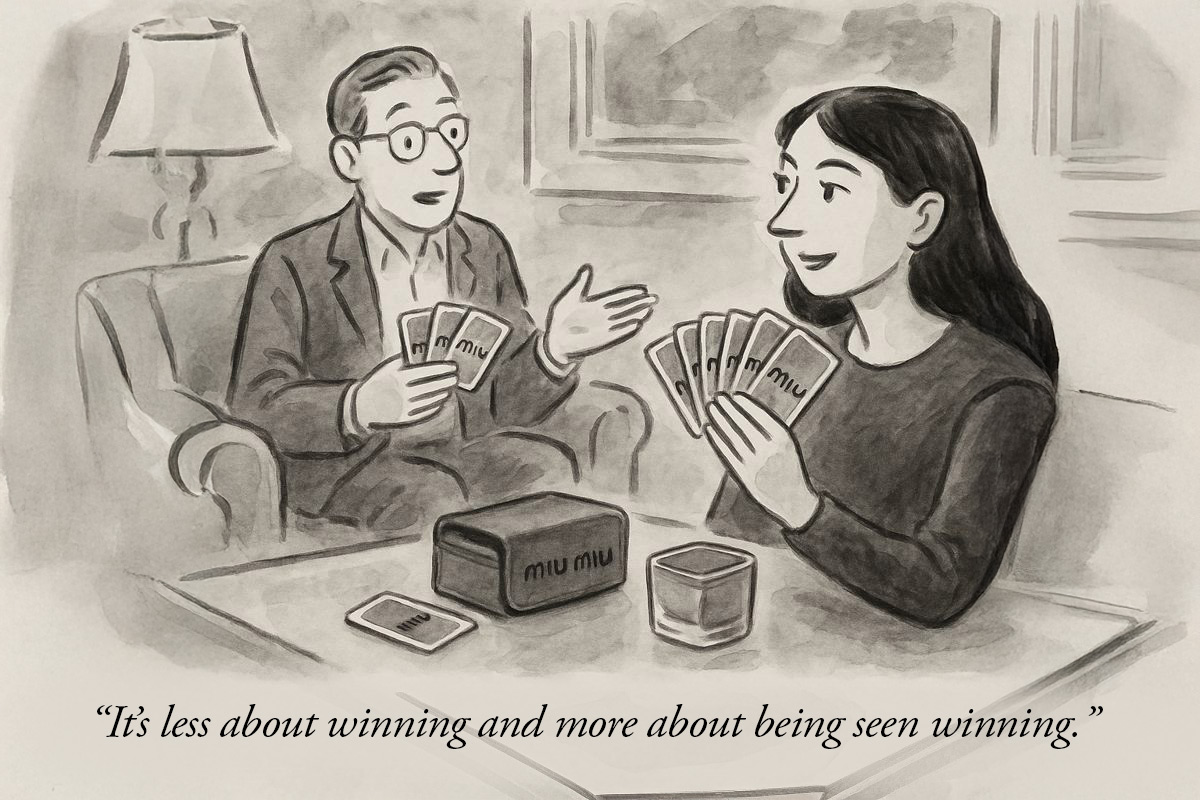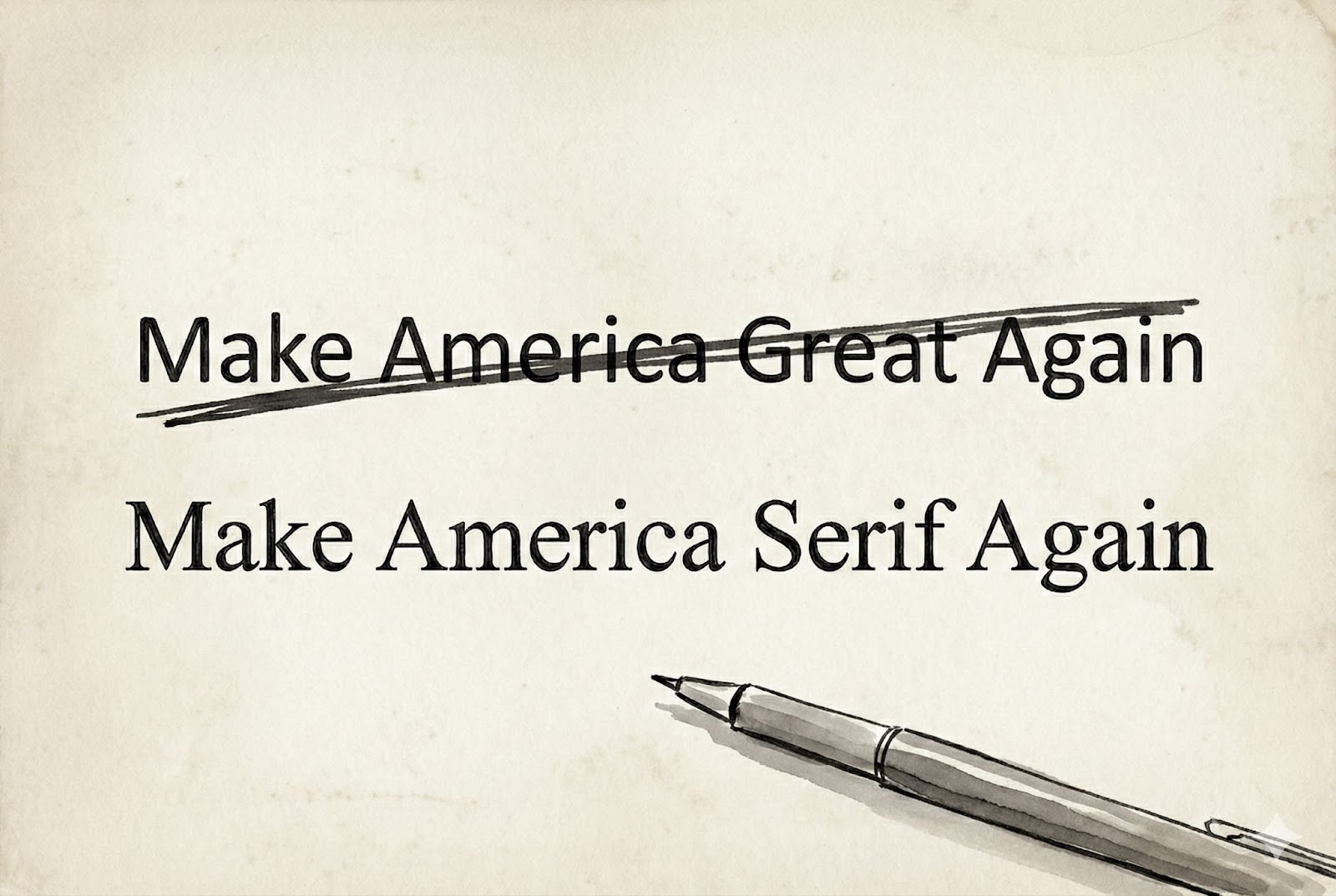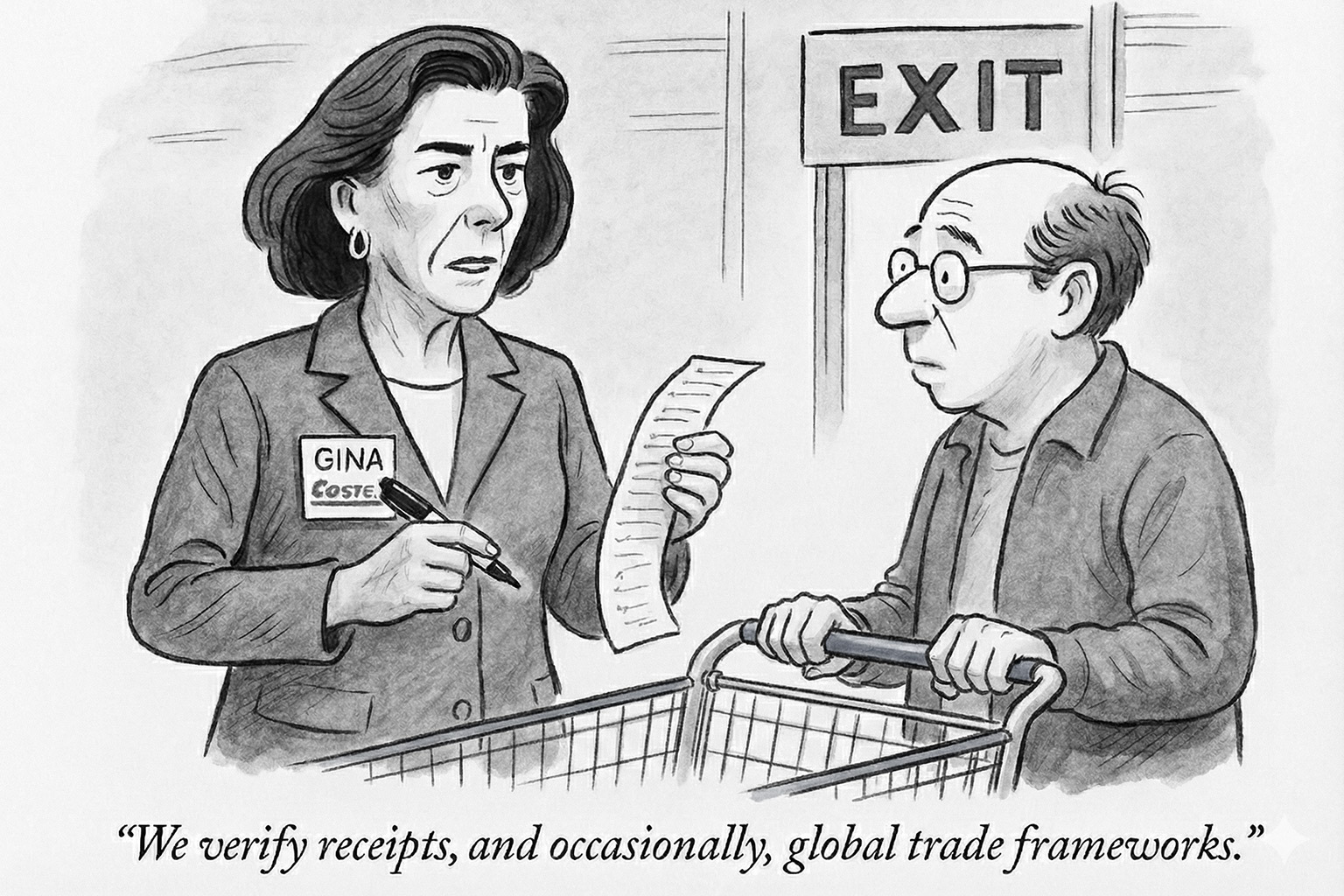
“I did it. I found the abandoned carts.”


Welcome to Wednesday, futurists! Marie Kondo gave up hope this week, so it seems fitting that my third-favorite newsletter, Blackbird Spyplane (which trails just behind The Senses and Dirt) would have dropped a banger about whether all of that clutter in your home “sparks joy.”
Their question: what do I do with all of these t-shirts in my closet?
From their letter: "I can’t tell you how many times I’ve come across a banger graphic tee for sale online and said, “Oh s**t that’s dope as h*ll,” only to remind myself that instead of buying it, I can satisfy that urge (or a sufficiently proximate one) by just saving a jpeg and maybe, like, forwarding it to a friend who I know will get a kick out of it, too."
Shopping online is a therapeutic exercise to have the “sufficiently proximate” feeling of ownership of the product without the hit to the wallet.
This supports our thesis for "unrecoverable abandoned carts" — sometimes you need to evoke the feeling of shopping without actually buy things. This is in the same vein.
“Tees are unparalleled as a rockable image-delivery technology,” says Spyplane. “Sort of the same way French fries are a fat-delivery technology.” Adding products to the cart is a rockable dopamine-delivery technology.
There’s a romantic pursuit in the relationship between brand and customer, a tryst with a product that is over before it even has begun. We add to the cart as a means of flirtation. We never meant to commit, it was merely to feel something.
The longing, the almost, the nearly, and the never.
Then the abandoned-cart email is no longer a reminder; it’s a tease and titillation. It’s flirting back.
Yes. The shopping cart is a “rockable flirtation delivery technology.”
— Phillip
P.S. if you want to flirt with selling your online store, maybe check out our series on “How to build a dreamy eCommerce exit” with our friends-with-benefits, OpenStore. They’re offering $10k to people who visit through our link. Check out our five-part podcast, too, if you want to get into a longer-term relationship.


The End of Writing. The declining importance of writing is already entrenched in the culture. Many school districts proffer cursive to typing on keyboards already. Focused writing app iA put forth a manifesto this week claiming that, with large language models like GPT reducing the importance on writing, that we can reclaim that time for more worthwhile pursuits: like creative thinking, ideation, and synthesis of ideas.
Our Take: Progress is not guaranteed. Cultural innovations have been lost before: from the loss of coinage in the Dark Ages, to the decline of Roman irrigation and metallurgy in medieval times; even the Mayan culture lost shipbuilding and terrace farming due to blight and disease. In this case of writing, the fear of loss coincides with the decision to abandon.
Progress always replaces prior innovations. The current discourse around whether we need gas stoves in our houses is a good example, as pointed out by Mike Solana in the linked piece. The aesthetic of “American Futura” — or optimistic futurism — is a nostalgia gut punch. Not because of the post-H-bomb era of peace that gave way to cold war and pessimism; but because it represented possibility.
What we decide to leave behind will depend on nostalgia, the pace of progress and innovation… and aesthetic tradition.
We’ve Been Framed. "The frame" as an aesthetic is a tradition carried over from square LP jackets, and the author of this piece purports that it dates back to greek pottery. We see this in consumer brand labels, too. From established brands like Dyptique to startups like Piecework Puzzle, Something and Nothing beverages, and Cat Person. Brand labels are still frames that borrow from artists' traditions, but are commercialized for our consumption.
More Sights & Sounds. Despite a stellar BFCM season with 97% on-time delivery. FedEx is cutting costs and laying off over 10% of its global management staff. Is Meta on the rebound? California to put DMV records on the Tezos blockchain. A woman left her life as a teacher and is much happier just working at Costco. Lowe’s is solving retail crime. Here’s the skinny on tech layoffs. Gen Z says schools can do a lot better at teaching them the skills they need in a digital world. Is it possible that technology makes us more human? MrBeast has now cured the blind, and somehow it feels kind of icky. The Department Podcast has a great episode on economic indicators. Here’s a video recap of 2022 retail. Also, this is a must-watch analysis of the current state of consumer brands and eCommerce. Professor Daniel McCarthy projects that the "new normal" is, mostly, back to the "old normal," as most brands have returned to pre-COVID norms.


It’s Called Fashion. Rising trends in menswear are turning a lot of heads, with styles such as extra-long overcoats, and what looks to be the rejection of the alpha male.
Runners, Rejoice. Tracksmith seems to have stepped into footwear with the effortlessness one feels while running in their new shoe. Rave reviews abound.
More Touch News. Nike is suing Lululemon, claiming infringement on their patents. Todd Snyder is launching his own custom cologne. Ruggable joins other eCom startups and will lay off 100 employees.


Growing Chain. The Nuts Factory is working to bring an Israeli-market-style shopping experience to New York, where shoppers can find selections of fresh spices, nuts, and dried fruit. The chain is rapidly growing and has even expanded into New Jersey and Boston.
Let That 2-Pack Be a Warning. A TikTok video has gone viral after a visibly troubled shopper shows cheap frosted sugar cookies for sale in a two-pack, and states “I know for sure we are in a recession now.”
More Palate News. Goodles (Gal Gadot’s brand) is now at Costco. And speaking of which, Sam’s has undercut Costco’s hot dog combo price by 12 cents, and now a side-by-side taste test has ensued. Frozen coffee pod startup, Cometeer, has been quietly struggling with layoffs, a CEO change, and talks of internal dysfunction by employees.

Fungal Danger Afoot. The Last of Us might be on to something — with global temperatures rising, dangerous fungal infections in humans continue to increase. Scientists believe fungi may be adapting to live in hotter temperatures than they previously could, and now varieties that could not have thrived at 98.6º Fahrenheit are finding a way.
Jolting Joyful News Alert. Marie Kondo may have decided that having a messy house might spark joy for her.











.svg)
